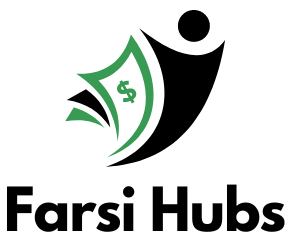An important goal for many people is a prosperous retirement life, and with the right planning, this is possible. With years of experience and assets, seniors are in a unique position to get the most for their money. This article shares insider tips and secrets on how to master advanced finance so you can have a great retirement.
Understand Your Financial Standing
First, take a good look at all your money-related assets, such as savings, stocks, real estate, and retirement accounts. Knowing what you own and owe can give you a clear picture of your financial situation, which is the first thing you should do if you want to retire rich. Ensure a stable income stream by considering all your options, such as pensions, social security, rental income, and dividends. Knowing how much money you make every day can help you plan your expenses and investments.
Investment advice
Spreading your investments across different types of assets is an excellent way to reduce risk and make the most of long-term opportunities. Rebalance your portfolio regularly to maintain the desired mix of assets, taking into account changes in the market and your financial situation. By investing your money in different assets such as stocks, bonds, real estate, etc., you can protect your money from the fluctuations of different markets. Investing in stocks can allow you to make money, but bonds and other fixed-income assets can give you a sense of security and a stable income, which is important for retirees.
Take smart risks
It’s smart to be careful with your retirement investments, but avoiding all risks can also prevent your money from growing. When you take smart risks, you invest in things that have a higher chance of return but are still within your risk limits. These could be shares, real estate transactions, or other investments that can grow without exposing you to too much risk.
Tax planning and time-saving
It’s important to understand how your investments and sources of money affect your taxes. Smart tax planning can change your retirement assets for the better. Consider tax-advantaged accounts, such as a Roth IRA, where withdrawals are tax-free when you leave. Also, know when to collect Social Security benefits to pay the least amount of tax.
Seniors can receive rebates and credits to reduce their taxable income. If you have investment income, you may need to use tax-loss or other methods to balance your capital gains. Working with a tax advisor can help you better understand complex tax rules and obtain the best tax outcome.
Planning your estate and how to pass on your assets
Estate planning is more than just preparing for death; This is also an important part of managing money. With good estate planning, your money ends up with the people you want it to go to and your heirs pay as little tax as possible. Keep your will, trusts, and beneficiary names current so that they reflect your current wishes and financial situation.
To protect your assets and reduce estate taxes, you may need to create a trust or other legal arrangement. Discussing these plans with a financial expert or an attorney who specializes in estate planning can help you determine the best way to handle your situation.
Manage healthcare funds
The price of health care in retirement can be high and unpredictable. If you don’t want your assets to disappear, you need to plan for these costs. Review all your health insurance options, such as Medicare and supplemental plans, to make sure you are fully covered. If you want to protect your assets against potential medical expenses, you can purchase long-term care insurance. This covers costs that Medicare does not cover.
Keep learning about money
The world of money is constantly changing and it’s important to stay informed if you want to preserve and grow your wealth in retirement. Stay up to date with the latest business news, market trends, and new ways of consuming. There are many places to learn about money, including financial advisors, seminars, online training, and books.
Staying involved and informed can help you make better financial choices and change your plan as necessary to adapt to changing market conditions and your own needs.
Conclusion
To have a prosperous retirement, you need to do more than just save enough money. You also need to know how to spend your savings wisely, plan your taxes, create an estate plan, and keep learning. With these insider tips, seniors can use their knowledge and assets to earn a lot of money in retirement. If you understand your financial situation, make smart investment decisions, plan for taxes and real estate transfers, pay attention to your healthcare costs, and commit to continuous learning, you can have a financially stable and prosperous retirement.
FAQs
1. What are some good ways adults can calculate how much money they have?
Seniors should start by taking a closer look at all their assets, including their savings, investments, real estate, and retirement funds. They should also look at their debts, such as mortgages and loans. Understanding income streams, such as Social Security, pensions, and other income sources, can improve your financial picture and make planning and management easier.
2. What investments should seniors consider if they want to retire rich?
Seniors should focus on a diversified portfolio that balances risk and return and is consistent with their financial goals and risk tolerance. Stocks, bonds, real estate, and other types of investments can all be invested. Regularly reviewing and adjusting your portfolio is important to stay abreast of changes in the market and your own financial goals.
3. How important is tax planning for top financial executives?
If you want to have the most money in retirement, tax planning is a must. This means understanding how different income sources and business options affect your taxes, using tax-advantaged accounts, and figuring out ways to pay as little tax as possible. A conversation with a tax professional can provide you with advice specifically tailored to your financial situation.
4. Why is estate planning so important to financial success as a senior?
Estate planning can ensure that seniors’ money goes to the people they want and can provide significant tax savings for their children. It involves drafting or updating legal documents such as wills and trusts, as well as planning the transfer of assets to ensure the continuation of wealth for future generations.
5. What should seniors know about paying for medical expenses in retirement?
To lower your medical costs, learn about Medicare and supplemental insurance, estimate your likely out-of-pocket costs, and consider purchasing long-term care insurance. It’s important to plan healthcare costs so they don’t take up a large portion of your retirement savings.
6. What benefits can older adults gain from continuing to learn about money?
Seniors can stay abreast of the latest market trends, new investment products, and changing tax rules by continuing their financial education. These changes can affect their financial planning and management. When seniors stay informed, they can make better financial choices and adapt their plans to changing needs and market conditions.


